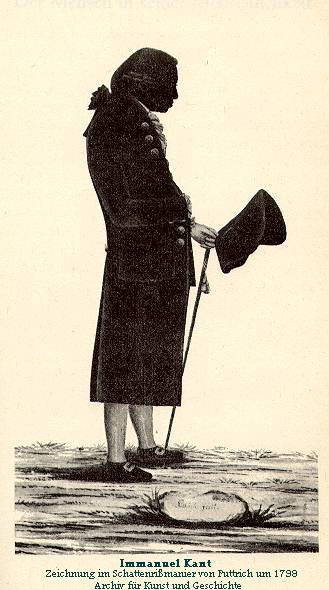[Kant died on February 12 in 1804.]
“Now an action done from duty must wholly exclude the influence of inclination and with it every object of the will, so that nothing remains which can determine the will except objectively the law, and subjectively pure respect for this practical law, and consequently the maxim that I should follow this law even to the thwarting of all my inclinations.”[1]
For example:
“it is a duty to maintain one’s life; and, in addition, everyone has also a direct inclination to do so. But on this account the often anxious care which most men take for it has no intrinsic worth, and their maxim has no moral import. They preserve their life as duty requires, no doubt, but not because duty requires. On the other hand, if adversity and hopeless sorrow have completely taken away the relish for life; if the unfortunate one, strong in mind, indignant at his fate rather than desponding or dejected, wishes for death, and yet preserves his life without loving it—not from inclination or fear, but from duty—then his maxim has a moral worth.”[2]
Sources:
[1] Immanuel Kant, Groundwork of the Metaphysic of Morals (1785), translated by H. J. Paton, 397.
[2] Immanuel Kant, Fundamental Principles of the Metaphysic of Morals (1785), translated by Thomas Kingsmill Abbott, first section.

